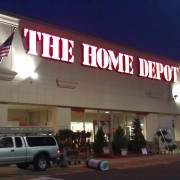Instacart has confirmed its giant $220 million investment led by Kleiner Perkins Caufield & Byers, which Re/code previously reported values the grocery delivery startup at $2 billion. Now the real work begins.
Instacart, whose service lets people order groceries from local stores such as Whole Foods and Costco and have them delivered on the same day, faces a long list of challenges to live up to the hype that comes with such a deal.
One challenge will be managing a colossal — and growing — network of contractors who are either stationed in stores picking the groceries off the shelves or delivering the orders to customers’ doors. CEO Apoorva Mehta confirmed that Instacart is experimenting with outsourcing some deliveries to third-party companies, but declined to give more details about which companies or how heavily Instacart is moving into this new model. Such a move may help Instacart deal with demand when it moves into new cities, or perhaps it’s being done for financial reasons. But it’s always risky to outsource part of a consumer-facing experience.
In the future, Instacart may also have to find a model that works well outside of major metropolitan areas if it wants to build a true nationwide business. Mehta said the company’s current valuation is based exclusively on operating in metropolises. He also hinted that the company could choose to expand to international urban centers before going to rural America.
But he said Instacart may decide to tweak its model if and when the time comes to expand into smaller cities and towns.
“Maybe you don’t need to do one-hour delivery,” he said. “Maybe it’s same-day delivery. Maybe it’s also click and collect,” a model in which customers order groceries online and pick them up outside the store, which Instacart has started experimenting with.
Instacart also will need to continue to secure close relationships with grocers, in part so the inventory it shows on its site and app is the inventory that it ends up delivering to its customers. Mehta says his company is building software that some grocers are using to reflect a more accurate picture of their inventory online.
Lastly, the company will have to be smart about expansion into categories outside of groceries, which Mehta said will happen eventually with the help of the gobs of new cash he just secured. Mehta may also have to convince one of his investors that it’s a necessary move.
“From my point of view, we just need to be the supermarket’s best friend,” Michael Moritz, chairman of Sequoia Capital and an Instacart board member, said in an interview with Re/code. “We can be a fantastic supermarket delivery service and just have a fantastic company — end of sentence.”
That’s pretty definitive. I then asked him if that means he’s not a fan of Instacart’s desire to enter other categories?
“I cannot imagine running out of opportunities to deliver groceries to Americans who want to shop online,” he answered.
Moritz’s caution may come from experience. He was a board member of Webvan, the grocery delivery startup that went bust in 2001 because it expanded too quickly and couldn’t control its costs.
Mehta declined to specify a timeline for expansion into non-grocery categories or provide details of which categories.
“This is an enormous market and we have so much to do here. I’m not surprised [Moritz] said that and clearly it’s a great observation,” Mehta said. “The way I think about it is: We have strategic reasons why we’ll go into other categories and experiment and prove out other things. Of course this is a decision we’ll make as a team, as we need to.”
In addition to Kleiner Perkins, new investors in the round included Thrive Capital, Comcast Ventures, Dragoneer Investment Group and Valiant Capital.
Link to article here

